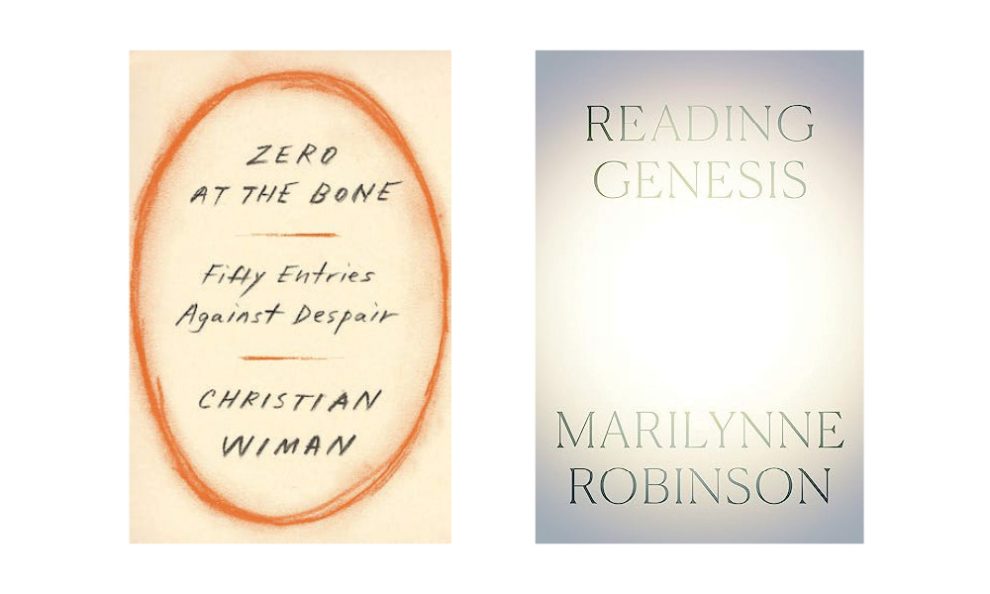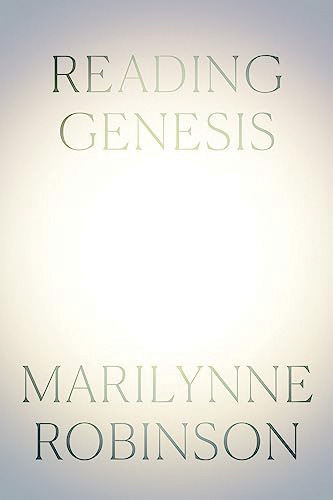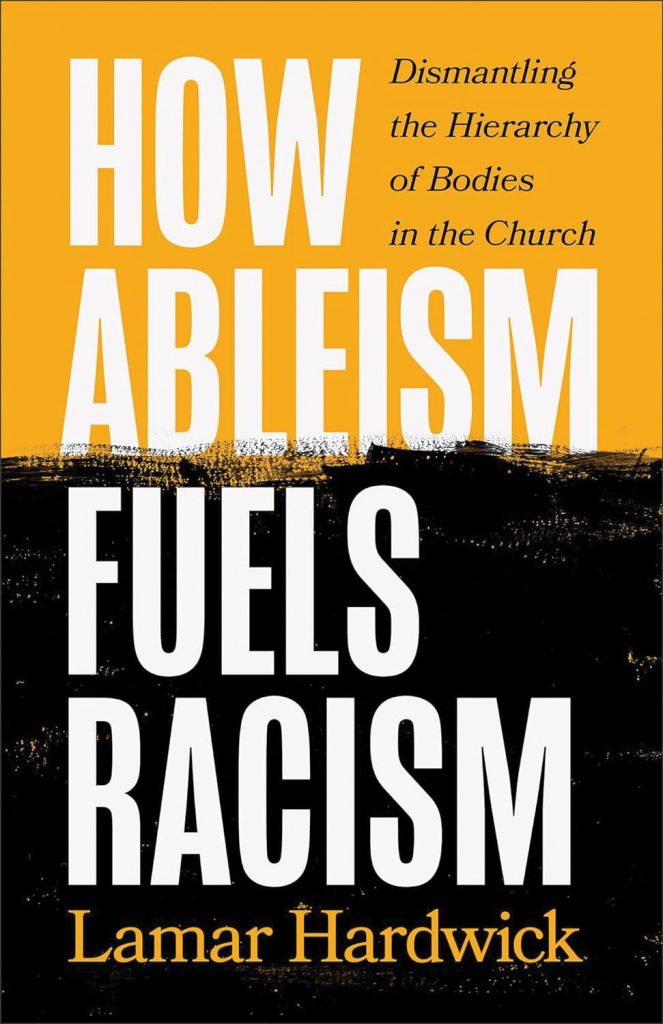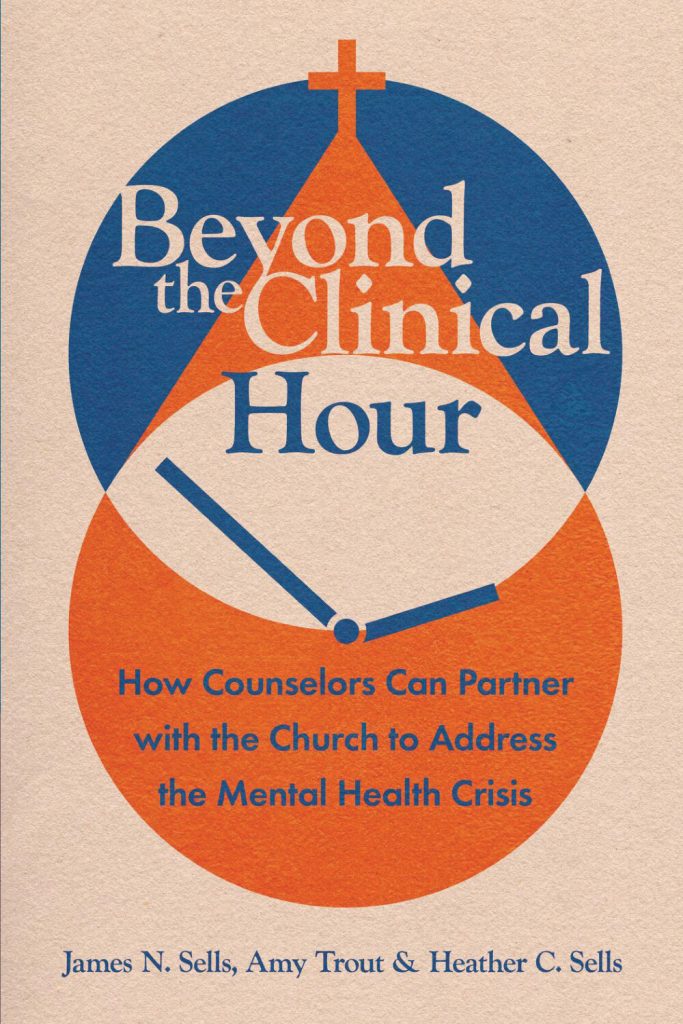Zero at the Bone
By Christian Wiman (Farrar, Straus and Giroux, 2023)
Despair hits differently at different times, and sometimes what hits isn’t despair, but a pleasurable cosplay of it. What poet Christian Wiman explores in Zero at the Bone, an interweaving of poems, reflections on poems, and memoir is the real thing. His musings on God, humanity, love, poetry, philosophy, evil, and suffering are shaded by his experience of living with cancer, an “intimate acquaintance with the condition” of despair. “I have no idea what this book will be,” he writes at the opening. This isn’t a faux exploration, within preset boundaries. It’s a foray into the unknown that is truthful about the pain and fear such journeys entail, and not just because of cancer.
The writing in this book, both poetry and prose, is, of course, spectacular, alarming, and honest. The honesty offers a relief from a kind of Christian literary writing that is overly enamored with certainties. Many writers of faith would be happy, for instance, to pounce on Virginia Woolf’s scorn for T. S. Eliot’s conversion and bring up her own death by suicide as though it proved something. Wiman doesn’t do this. “Her despair and Eliot’s are facets of the same thing,” he writes.
Despair, of course, isn’t the solution, and there is space for revelations that may rescue. But these revelations are often private and disconcerting. In one entry, Wiman quotes Cain in Howard Nemerov’s poem of the same name: “I can believe that, but nobody else will.” But what Cain can believe is something monstrous: that God was the serpent in the garden.
Exploring such terrifying possibilities can be strangely salvific. “Myth and metaphor require their kinship with the unconscious,” Wiman writes, “and the dark matter (a metaphor, note) of reality becomes, instead of corrosively unknowable, the very terrain of faith. Poetry is the only sanity.” If you are sick or sad or angry but still in search of that terrain, this book may be a guide for seeking it.
—Rebecca Bratten Weiss
Reading Genesis
By Marilynne Robinson (Macmillan, 2024)
Christian readers may not always be inclined to approach scripture from a literary standpoint, yet this is what Marilynne Robinson invites us to do in her latest work. Reading Genesis traces the narrative of the text, inspecting what the early writers meant, while reflecting on what emerges in the following books of the Bible. In her reading, Robinson seeks to enhance the critical message of Genesis: that of humanity’s importance in what might generally be called “God’s plan.” The work centers on the incredible consistency and clarity of God’s covenant with God’s imperfect, broken creatures.
Highlighting each story of Genesis—creation, Cain and Abel, Noah, Babel, and Abraham’s line—the structure of the first book of the Bible becomes clear as Robinson looks ahead to the Christian scriptures, then returns to her exploration. The fluidity of biblical narrative comes through as historical insight, literary criticism, and holistic vision, which are then synthesized. Robinson refuses to limit herself to patterns of spiritual theory or become too bogged down in engaging with prior scholarship. She presents the primacy of what she sees in the text—and the reader is rewarded by her deep reading.
Robinson’s reason for avoiding going too far into scripture scholarship or grappling with points of contention raised by historians, skeptics, and theologians is that some truths cannot be understood by human rationality alone. This frees her from falling back on comfortable solutions or easy answers that might soothe contemporary Christians—a trend that she consistently critiques throughout her work. Ultimately, she presents an alternative reading of the Bible that may catch some readers off guard and may be unsatisfactory to those who want easy answers. In this challenging but strangely comforting work, Robinson’s explorations ultimately convey a message of hope to her fellow Christians.
—Alexander Pyles
Briefly noted:
Called to Action: NETWORK’s 50 Years of Political Ministry
By Sister Mara D. Rutten (NETWORK, 2023)
Rutten tells the story of how NETWORK’s “radical feminists” offered a new vision of church as they worked to advance human rights.
How Ableism Fuels Racism
By Lamar Hardwick (Baker Publishing Group, 2024)
As a Black autistic pastor and disability scholar, Hardwick invites Christian communities to engage in conversations about race by addressing issues of ableism.
Beyond the Clinical Hour
By James N. Sells, Amy Trout, and Heather C. Sells (InterVarsity Press, 2024)
This book examines the creative partnerships between churches and mental health professionals springing up across the United States to address the mental health crisis.
This article also appears in the April 2024 issue of U.S. Catholic (Vol. 89, No. 4, page 39). Click here to subscribe to the magazine.





















Add comment